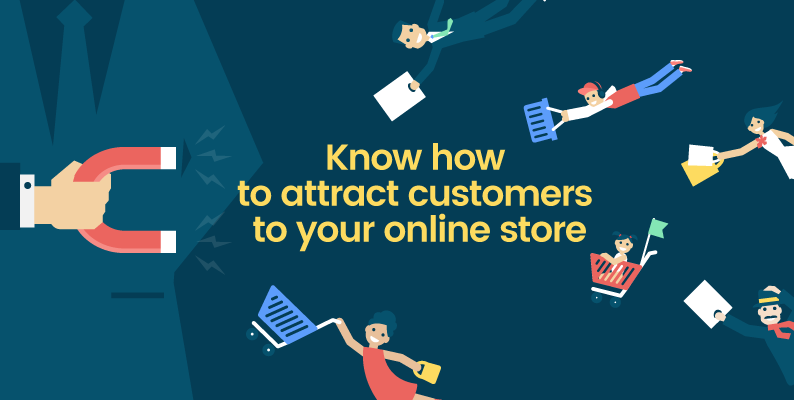In 2022, the Internet has become an integral and widely-accepted component of people’s daily lives. The Internet has become more accessible and safe thanks to widespread digital change. Most research businesses in this field believe that between 80% and 90% of all network traffic is encrypted.
SSL certificates are selling like hotcakes now that HTTPS is mandatory, but where can you get the best deal? Use the comprehensive documentation provided for the
Fynd platform product suite, a veritable encyclopaedia of its subject matter. To create your online store, getting all the platform APIs is necessary. Whenever you need assistance using the Fynd Platform, you may get rapid support and be routed to relevant tutorials and videos.
Are you a newcomer to the world of online shopping? No need to worry; we’ll break everything down for you.
What Each Type Of SSL Certificate Costs
The number of domains and subdomains an SSL certificate may secure and the kind of validation required to get the certificate to fall into two broad categories.
In a moment, you’ll see how this classification also impacts the cost of SSL certificates.
Let’s start by exploring the various SSL certificates available. Here, they are organised according to how many domains they can shield:
Secure Sockets Layer Wildcard Certificate
Wildcard SSL certificates are an extension of single-domain SSL certificates that protect a root domain and any first-level subdomains that fall under it. However, these certificates are an extension of single-domain SSL certificates that protect a root domain and any first-level subdomains that fall under them.
Certificates of Authenticity for Multiple Domains
With a single SSL certificate, you may secure several domains or subdomains. There are no restrictions of any sort.
There are no restrictions on the depth of the hierarchy or the number of levels deep that must be protected when securing multiple domains and all their subdomains.
There are three distinct forms of each of these certifications available. Certificate Authorities (CAs) have unique issuance processes that generate these variations.
If You’re Looking To Secure Your Website, How Do You Decide Which To Use?
Which SSL certificate is suitable for your website, like Fynd Platform, will depend on the nature of your website and the amount of security you need.
Domain Validated, Organization Validated, and Extended Validated SSL certificates are available, each with a different degree of protection.
Validated Certificates For Domains (DV Certificates)
Domain Validated SSL Certificates provide the lowest possible degree of security and are thus the most basic option.
You may get one in a matter of minutes after proving you are the legal owner of the domain in question.
Personal blogs and websites that don’t need users to log in or make purchases online are good candidates for DV Certificates since they don’t require users to provide personal information.
Validation with Additional Information (EV Certificates)
Certificates that have been Extended Validated are the most reliable option available.
These are the most costly options; they need proof of domain ownership and other details about you or your company.
The company’s name and a green padlock icon appear in the address bar of every web browser.
Since the audience knows who they’re dealing with, they have greater faith in the presented content.
Businesses running online stores would benefit greatly from EV certifications. Customers are far more willing to provide sensitive information like credit card numbers or addresses if they see the secure “green padlock” symbol on their browsers.
Statistics show that 67.9% more customers are willing to purchase a business whose website displays an EV certificate (the green address bar and firm name).
What Factors Into The Cost Of An SSL Certificate?
An SSL certificate’s price tag can be challenging to pin down. The common misconception among newcomers is that higher-priced certificates provide greater security.
However, the SSL business uses the ubiquitous TLS (Transport Layer Security) standard to encrypt all sensitive data.
Therefore cost is irrelevant. Thus, the security provided by any SSL certificate, from the most basic to the most expensive, is unbreakable with today’s technology.
Having gotten that out of the way, we may examine the factors that impact SSL certificate prices.
The whole Internet has to be protected by validation-type SSL certificates, but not all sites are created equal. Security requirements for a small, personal blog differ from those of a big, publicly accessible online store.
Therefore, SSL validation, like Fynd Platform, should be your priority when selecting a certificate.
Domain Validation SSL (DV SSL) is a crucial consumer trust and feature provider since it simply checks domain ownership. Therefore, it is the most popular and cost-effective choice. You can use this theme for your blog, portfolio, or informative website.
In 2022, How Much Will An SSL Certificate Set You Back?
An SSL certificate encrypts a user’s personal information sent to your website’s server. The answer to this question is contingent on the SSL certificate’s verification method and the number of secured domains.
Secure Sockets Layer Wildcard Certificate
Wildcard SSL encryption is in place, protecting the domain and any subdomains at the top level. You can lock down not only example.com but also blog.example.com, app.example.com, and any additional subdomains. The yearly renewal of this SSL certificate will set you back $30.
SSL Certificate For Multiple Domains
Multi-Domain SSL Certificates are a convenient way to protect all domains and subdomains. Using the same SSL certificate, you may secure example.com, blog.example.com, and sample.com. You may get an SSL certificate for as little as $60 per year.
A domain validation (DV) check aims to ensure that you are the rightful owner of a certain domain. It’s perfect for those who don’t need users to sign up for anything to see their blog or website. DV certification is yearly and costs around $70.
Verification of Organizational Capabilities (OV)
After validating your domain ownership and the identity and location of the company, a certificate authority (CA) will issue an OV SSL certificate.
Companies that don’t ask for highly confidential information from clients, such as credit card details, might benefit greatly from an OVL SSL certificate, which provides more assurance than domain validation but less than extended validation. The standard annual fee for an OV certificate is $150.
Certificates with Extended Validation (EV) confirm the physical and legal presence of the organisation in addition to DV and OV. Being the highest standard of verification available, it is also the most reliable and costly. The annual cost of an EV certificate begins at $200.
What Is The Cost Of Getting An SSL Certificate?
Indeed, SSL certificates aren’t free. SSL certificates is purchased for a fee. However, there are other free alternatives available that provide the same security. It is issued and signed by the CA for a fee. The benefits of a premium SSL certificate outweigh the cost, which might vary from $XX to $XXX.
A Secure Sockets Layer Certificate: Where Can I Get One?
There are two options for SSL certificates. A website builder, domain registrar, or web server can provide you with an SSL certificate. This approach reduces complexity for smaller businesses. A free SSL certificate lasts a year.
SSL Certificates’ Advantages
Let’s briefly discuss what an SSL certificate can do for you. If you already know this information, you may skip this section. Here are the top three advantages of SSL certificates:
Safeguards Your Visitors’ Personal Information
A visitor’s personal information is the most valuable asset, and an SSL certificate is there to secure it. Lacking encryption, fraudsters may intercept data as it travels between users’ machines and your web server, stealing sensitive information.
It Helps Avoid Having Your Website Labelled As Unsafe
You may have noticed previously that Google marks non-HTTPS sites with a “Not Secure” label in the address bar.
Your visitors will get the incorrect impression from this, and your site will seem and feel unprofessional. You may protect your website by setting up an SSL certificate.
Boosts Search Engine Rankings
If your site is not loaded via HTTPS, Google will label it as “Not Secure” in its browser.
As a consequence, your site will appear lower in search engine results. They’ve long since acknowledged this and now employ HTTPS as a ranking indication.
The lack of an SSL certificate is harming your search engine rankings.
Pricing for specialised Exchange SSL certificates designed for Microsoft Exchange or Office Communication Servers begins at $63.92 yearly. Once again, this is the greatest certificate available, so feel free to use it for all your domains.
The Benefits of Using an SSL Certificate to Protect Your Website
- An SSL certificate protects data transport by establishing an encrypted connection between the client browser and the server. In addition to protecting the privacy of its users, it ensures that the website is who it claims to be.
- It ensures that other parties, such as hackers, cannot intercept data sent between the server and the browser.
- An SSL certificate is required if your website offers payment processing to protect sensitive information, including users’ credit card numbers, login credentials, medical data, legal documents, home addresses, and more.
- Search engines like Google may downrank a website that doesn’t have an SSL certificate. In other words, if your site doesn’t have an SSL certificate, it could not even show up in the search results, which means you won’t get any new customers.
- Using an SSL certificate may increase your site’s user and search engine confidence, leading to higher page ranks.
- Secure Sockets Layer, sometimes known simply as SSL, is an internet security protocol that encrypts information sent between a server and a web browser. Users can now verify a website’s legitimacy by using this digital certificate. Transferred data is encrypted using algorithms before being sent to the intended destination.
- The SSL certificate’s issuing certification authority (CA) name.
- The issuer’s name and the domain name for which the CA issued the certificate.
- Certificate Authority digital signature
- Both the certificate’s issuing date and its expiration date are included
- Subdomains of the domain and their respective names
What Are The Benefits Of the Fynd Platform
You may sign up quickly and start selling your wares online right now. Get the word out and start making some money! Construct one-of-a-kind web pages and skins with the help of available development kits.
The kits’ user-friendliness and simplicity of operation also allow for more creativity and innovation.
Now you can give your app a unique look by adjusting its colour scheme and themes. Pick out what information is shown on the various pages, such as the home page, shopping cart, signup form, and product detail page.
As India’s leading offline-to-online eCommerce platform, Fynd Platform uses advanced cloud computing and technology to connect brick-and-mortar stores with their online customers.
The entire omnichannel potential has a solution realised by combining it with other multichannel infrastructures.
When it comes to delivering goods to customers in India and throughout the world, a one-stop solution that allows firms to set up e-commerce websites, accept online and COD payments, and work with affordable delivery partners is the best option for omnichannel retailers.
Conclusion
You can choose the best decision for your company based on your needs, goals, and resources.
You must have an SSL certificate installed and have your site loaded through HTTPS. Why hold off? A wide range of variables influences the price of an SSL certificate.
First, choose your budget and the validation type, brand, and other features you may want from a certificate. You will always pay the lowest price if you acquire and renew your SSL certificate from an SSL reseller.
FAQs –
1. Can I get an SSL certificate for free?
Certificate Authorities and third-party SSL certificate providers provide certificates that may be used to secure a website (CA’s). Free SSL certificates don’t cost anything, so website owners may use them as often as they want.
2. Do I have to pay for SSL once?
Your certificate will expire every two years and must be reissued. The validity period for free SSL certificates is just 90 days. Therefore, every 90 days, you will need to renew your free SSL certificate.
3. In other words, is it possible to forge SSL?
To begin, let’s define bogus SSL certificates. Criminals have found that if they steal the credentials of a certificate authority, they may generate fraudulent SSL certificates. Forged self-signing certificates may also be created and placed on a user’s computer.



